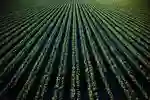On the frontline of research and innovation
How do you make a difference? By thinking differently. Our researchers are taking unconventional approaches to tackling the world’s biggest challenges, working together to change individual lives and humanity’s shared future.

£48 million investment for world-leading Wound Innovation Centre
With a consortium of industry partners, the Wound Innovation Centre (WIC) will be at the forefront of global wound research. Research carried out at the centre will transform the quality of life for those impacted by chronic wounds.
We’re tired of bad news.
So we’re doing some good.
Key themes
We didn’t come this far by holding back
For nearly 100 years, our researchers have been taking action to secure a better tomorrow. And we’re just getting started.
Today, we’re world leaders in palliative and wound care, mental health and addiction, renewable energy, flood resilience, social justice and the fight against modern slavery. Find out more about the difference we’re making every day.

A sustainable world
We’re confronting the climate crisis head-on, by working with partners and in communities to drive innovative solutions for the future of our planet.

A healthy world
We’re revolutionising healthcare in areas of critical need and breaking down barriers to access to ensure people get help when they need it the most.

An inclusive world
From fighting modern slavery to empowering marginalised communities, our research is shaping policies and solutions that build a safer, fairer world for all.
Find a researcher
Different researchers make the difference
Groundbreaking research starts with people who break the mould. Unconventionally brilliant minds who join forces to beat the odds and better everyday life. Hull is a haven for people just like this.
Connect with our diverse research community today. Together, we can explore the possibilities and achieve impossible successes.
Institutes and Centres
Together on the frontier of humanity’s future
Our institutes and centres are where our researchers come together. These dynamic hubs embody our belief in the power of interdisciplinary thinking and collaboration to drive research that matters.
Here, we foster a culture of curiosity, creativity and impact. Our researchers bring together diverse skills, experiences and perspectives to every problem. That way, we can explore pressing issues from every angle and co-create solutions that make the widest and most meaningful difference.
Energy and Environment Institute
Our impactful research, innovation and engagement activities tackle global issues around climate change, adaptation and mitigation.
Wilberforce Institute
We challenge and disrupt injustice by bringing people together to amplify their voices and overcome barriers and obstacles to living freely and with dignity.
Institute for Clinical and Applied Health Research
Our goal is to improve the health of our individuals and communities through research, innovation and education.
Research projects
A research University of the real world
We exist to find, share and embrace new ideas. Always have, always will. But what good are ideas if they only stay on paper? We put ours out to work for the benefit of humanity.
Spanning everything from health, inequality and social justice to energy security and climate adaptation, our research projects are having a real and immediate impact. Want proof? See for yourself.

Join us for a future of making history
We champion our researchers at every stage. Providing tailored resources and training, expert advice, and a collaborative community.
Want to join us? We’ll help you thrive as part of our research community. One built on a foundation of strong support, guidance and integrity.
Need a solution? Find out how our state-of-the art research facilities could provide the answer.
Research repository
Our work here is never done
Want to be the first to read our freshest publications? Visit our free, open-access research repository today. Here, you can explore the depth and diversity of our groundbreaking research and thought leadership as it happens.
Get in touch